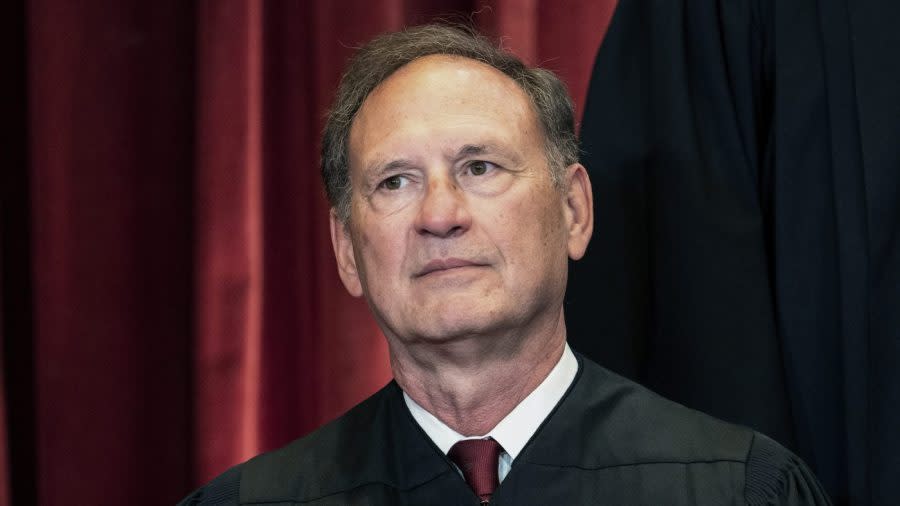Alito renews criticism of Supreme Court’s same-sex marriage ruling in rejecting Missouri jury case

- Oops!Something went wrong.Please try again later.
- Oops!Something went wrong.Please try again later.
Supreme Court Justice Samuel Alito renewed his criticism Tuesday of the high court’s landmark same-sex marriage ruling, addressing it in a five-page statement as part of an order explaining why the court declined to hear a case involving a Missouri lawsuit.
The case in question, the Missouri Department of Corrections v. Jean Finney, involved a dispute where jurors were dismissed from the employment discrimination case after they voiced religious concerns about same-sex relationships.
In his statement Tuesday, Alito said he agrees with the Supreme Court’s decision not to hear the Missouri lawsuit but said it “exemplifies the danger” that he anticipated in the 2015 Obergefell v. Hodges case.
“Namely, that Americans who do not hide their adherence to traditional religious beliefs about homosexual conduct will be ‘labeled as bigots and treated as such’ by the government,” he wrote.
The way Obergefell v. Hodges was written in 2015 “made it clear that the decision should not be used in that way,” Alito wrote.
The high court in 2015 voted 5-4 in favor of allowing same-sex couples the right to marriage, with Alito dissenting. He was joined at the time by Chief Justice John Roberts and fellow conservative Justices Antonin Scalia and Clarence Thomas.
In the matter of the case the court rejected to hear on Tuesday, Jean Finney was an employee at the Missouri Department of Corrections (DOC). She claimed that after starting a same-sex relationship with a co-worker’s former spouse, her job become intolerable because of that co-worker. She sued the Missouri DOC and said the department was at fault for the co-worker’s actions, The New York Times reported.
As part of jury selection, Finney’s lawyer asked jurors about their religious beliefs as they relate to sexuality. Finney’s lawyer, whose client was a lesbian, sought to strike jurors on the basis of that question, which prompted a lawsuit alleging religious discrimination.
Alito argued that while he “reluctantly” agreed the Supreme Court should not take up the case — which was requested by the Office of the Missouri Attorney General – he still has concerns about the effects of the 2015 decision on this case and future cases.
For the latest news, weather, sports, and streaming video, head to The Hill.

